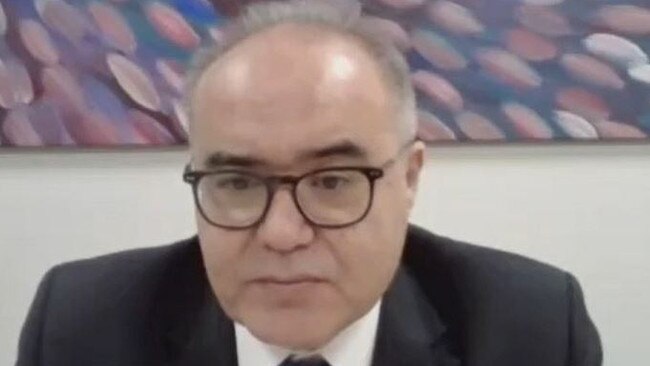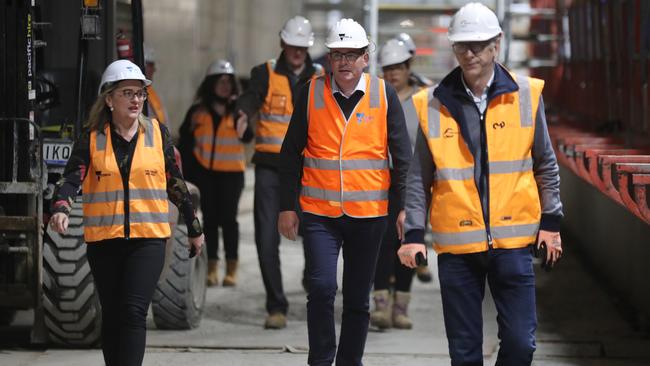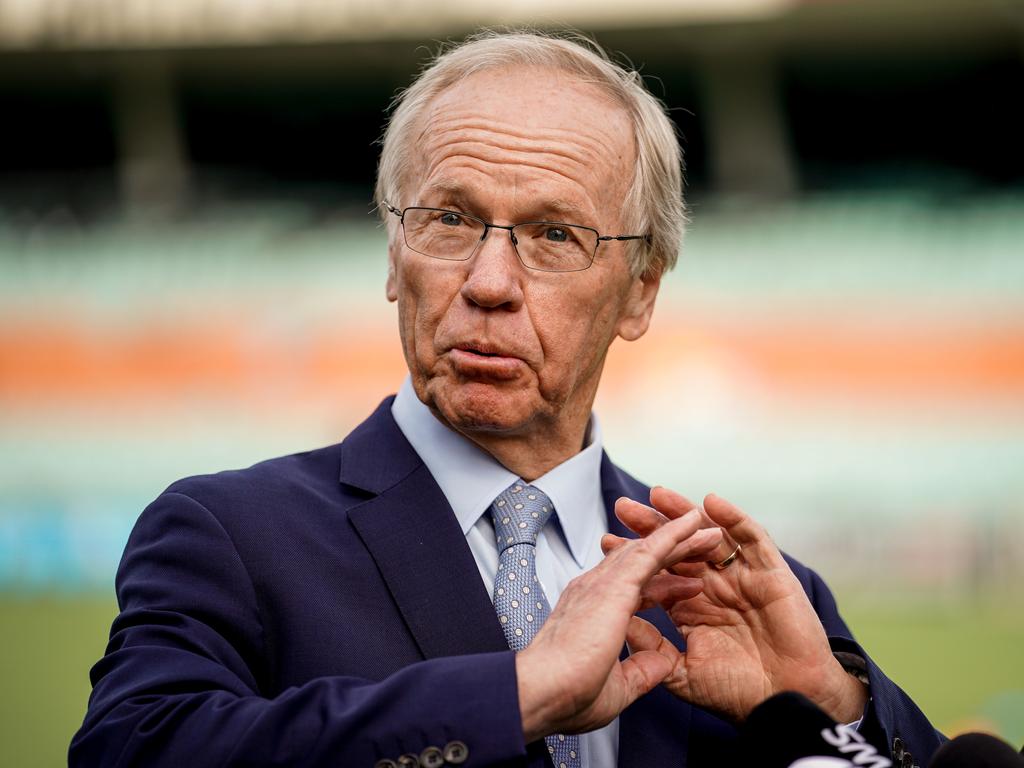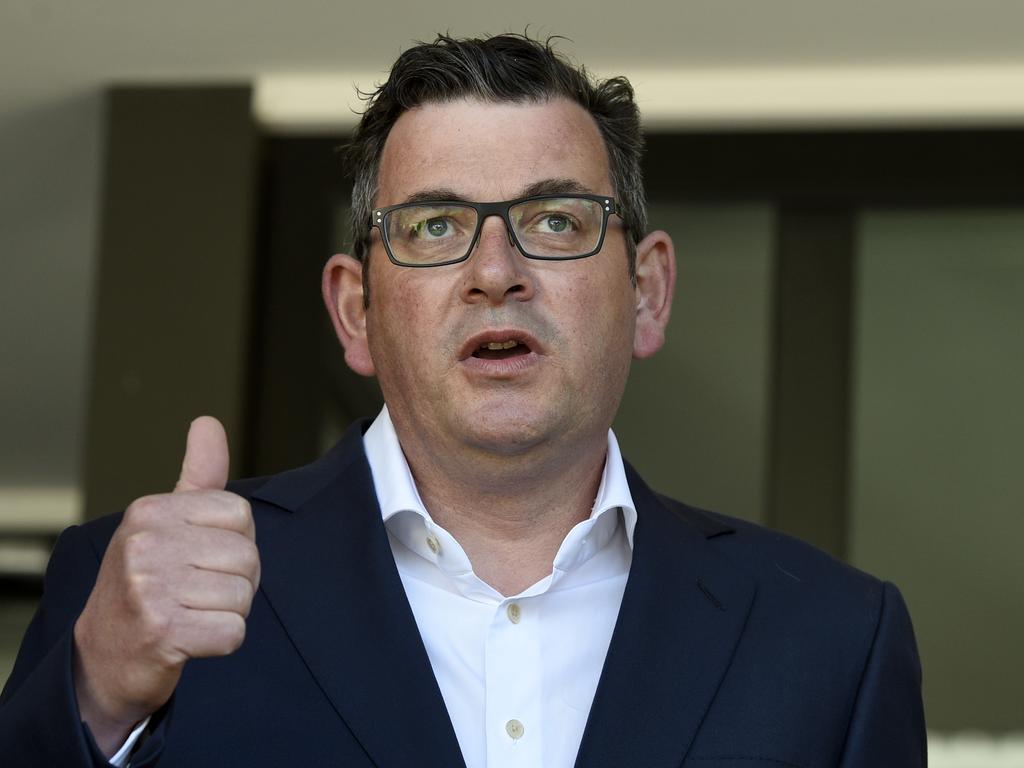IBAC: Adem Somyurek admits to unethical behaviour
Adem Somyurek told an anti-corruption inquiry he should be condemned as he laid bare the factional machinations of the Victorian Labor Party.

Former Victorian powerbroker Adem Somyurek has admitted his behaviour was unethical, telling an anti-corruption inquiry he should be condemned in the strongest possible terms as he laid bare the factional machinations of the state Labor Party.
The upper house MP admitted to organising taxpayer-funded jobs for factional reasons, allowing electoral office staff to complete Labor Party work and branch stacking.
Mr Somyurek said his conduct — in breach of party rules — was part of the party culture and said he had not considered that paying for membership renewals constituted branch stacking.
“It was so endemic in the culture of the Labor Party that I explained to you yesterday what I was — the culture in which I was initiated into and socialised into,” he told the Independent Broad-based Anti-corruption Commission.
“But we thought we were actually doing well in not, we would say, branch stacking for 20 years, staying away from the practice.”

On Tuesday, Victorian Premier Daniel Andrews refused to confirm or deny earlier allegations made by Mr Somyurek that he dismissed concerns over the Red Shirt rort and that the pair had hatched a factional peace deal to end stacking in the early 2000s.
“My job does not include trampling all over an independent process, and it certainly does not include replicating, with you good people, exactly the process that’s ongoing now,” he said.
“IBAC’s doing its job and we should all let it continue that.”
Mr Somyurek said he lost perspective in 2020 as he waged war against the Socialist Left in Melbourne’s southeast, which he said was triggered by aggressive recruiting by the staff of federal Labor MP Julian Hill.
He said he became less concerned by things such as signature forgery on membership forms after the IBAC hearing was played audio of Mr Somyurek saying “Do people check that much?” after being alerted to discrepancies.
“Let’s be frank — I’m not going to fight … there’s footage of me on the 60 Minutes program,” he said. “I should be condemned in the strongest possible terms.”
Mr Hill did not return The Australian’s request for comment.
Mr Somyurek admitted he paid for the memberships of a group from the Indian community, saying he had initially believed brothers Aloke and Akash Kumar were going to put them on their credit card. “I came to the realisation I’m probably going to have to pay for these people,” he said.
When asked by commissioner Robert Redlich QC if he knew his behaviour was unethical, Mr Somyurek said: “I knew it was, yes. And it was in response to hostile action from the (Socialist Left faction), but that’s no excuse.”
Mr Somyurek said he didn’t have evidence the Socialist Left was branch stacking but he suspected memberships were paid for by the sheer number of members they were producing.
He told the hearing he organised a job in the electoral office of federal Labor MP Anthony Byrne for Hakki Suleyman to smooth over factional tensions that erupted when Stephen Conroy quit as a senator but he expected the Turkish community leader to turn up for work, despite text messages to the contrary sent to Mr Suleyman’s children, Victorian MP Natalie Suleyman and Transport Workers Union employee Mem Suleyman.
“I have now said to you that I will put my 20-year relationship with my friend Anthony Byrne on the line and put it on him to give him two days a week for your father at his office, yet that is not good enough,” he said in the March 2017 message. “I tell you we can get him back into the state system and you say my sister’s name will be compromised. Yet you ask that your dad work in Anthony’s office without having to turn up – what about Anthony’s name?”
Mr Somyurek said he was clear Mr Suleyman would have to turn up to work, saying he would have derived great pleasure from him having to travel to Mr Byrne’s office in Fountaingate, but the member for Holt said no. “He (Mr Byrne) benefited from these ethnic recruiters but didn’t want them in his office, a reminder of how he got there, I think,” he said.
In another example of alleged ghost hiring, Mr Somyurek admitted he employed Jacob Cripps on a casual basis but said he expected he would turn up to work and rejected that his employment was “free money by the taxpayer”. “I thought it was the right thing to do, give a young man a job,” he said. Mr Somyurek returns before IBAC on Thursday.






